#golden harvest films
Text
On February 6, 1997 Riki-Oh: The Story of Ricky debuted in Germany.
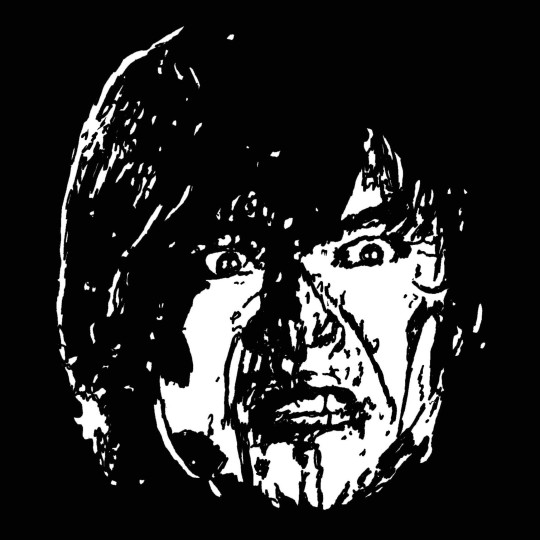
#riki oh#riki oh: the story of ricky#story of ricky#lam nai choi#fan siu wong#splatterpunk#splatter movie#splatter comedy#splatter film#splatter#dystopian film#obscenity#golden harvest films#movie art#art#drawing#movie history#pop art#modern art#pop surrealism#cult movies#portrait#cult film#tcm underground
1 note
·
View note
Text
Re-Electrifying a Dead Cop to Stop EVIL! "The Blue Jean Monster" reviewed! (88 Films / Blu-ray)
Click Here to Purchase “The Blue Jean Monster” available on Blu-ray!
Soon-to-be first-time dad Tsu Hsiang can’t wait to meet his son. Often times, his cop vocation intrudes on being there for his wife during her pregnancy as his torn between work and family, trying to be a good man in both regards, but when a tip comes through of a suspected bank robbery, Hsiang can’t neglect his duty and…

View On WordPress
#1991#33mm#88 Films#Aids#Amy Yip#Audition#Bei-Dak Lai#blu-ray#Cat III#Category III#comed-action-horror#comedy#comedy-horror#Daughter of Darkness#dead heat#Diagonal Pictures#Fui-on Shing#Gloria Yip#Golden Harvest Films#Haunted Jail House#Her Vengeance#Hong Kkong#horror#Ivan Lai#James Neal#Jonathan Chow#Jun Kunimura#Kai-Ming Lai#Kam-Hung Ng#Mei-yee Wu
1 note
·
View note
Text
i’m reading jin yong’s “the book and the sword” and. well. happy pride month to li yuanzhi but also come on man knock it off willya
#that’s right it is jin yong attempt 2.0#and tbh i dig this one a lot more than condor heroes#it’s fun to see that the shaw brothers and golden harvest films in this tradition are tonally spot on accurate#ryddles
13 notes
·
View notes
Photo



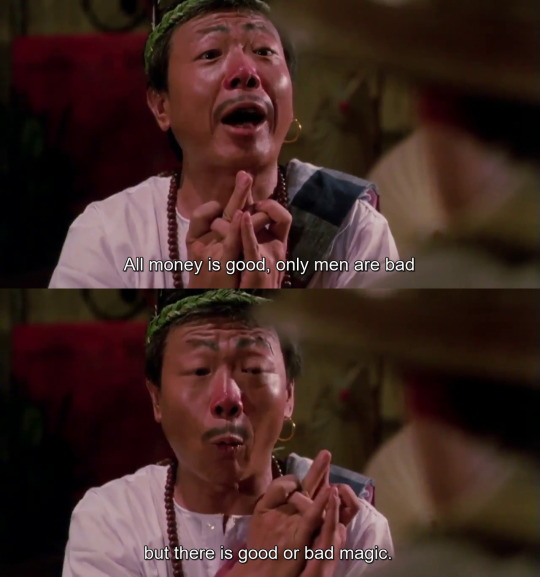
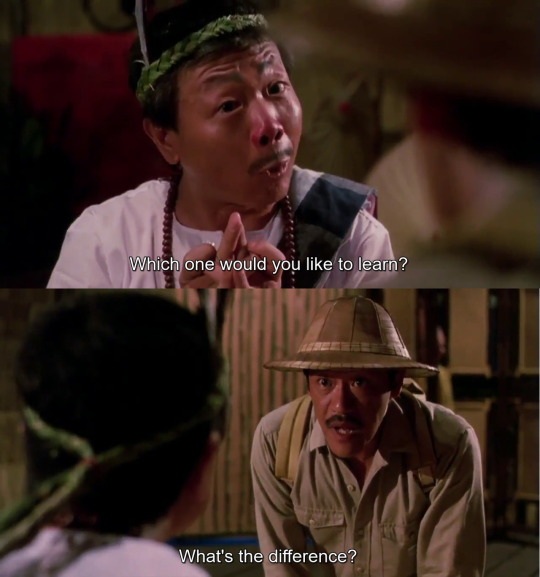
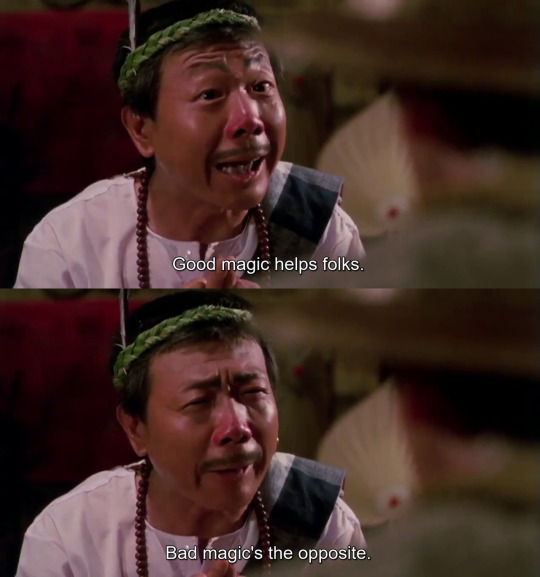


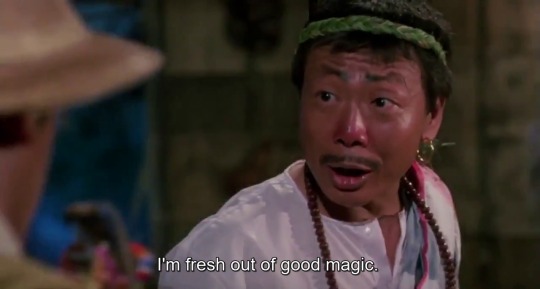
Writers creating a magic system.
(from Twinkle, Twinkle, Lucky Stars, 1984)
#writeblr#twinkle twinkle lucky stars#writing#fiction writing#ya fiction#magic system#ya fantasy#夏日福星#hk film#sammo hung#barry wong#golden harvest#magic#all of these characters are idiots#all of these characters are cheats#and thats kind of the gag
6 notes
·
View notes
Text

Ronald Colman
#Ronald Colman#actor#suave#handsome#voice#Hollywood#vintage#English#silent film#theatre#Academy Award for Best Actor#Golden Globe Award for Best Actor#A Double Life#Random Harvest#The Prisoner of Zenda#Lost Horizon#London Scottish Regiment#WW I#World War I#Territorial Army soldier#injured#Battle of Messines#The Talk of the Town#A Tale of Two Cities#Metro-Goldwyn-Mayer#radio#television#classic#SUTS 2023#TCM
4 notes
·
View notes
Text
Just some symbols that make me very happy! My religion as a cinephile if you will! A cure for the Sunday morning blues! Please indulge me! Thank you!

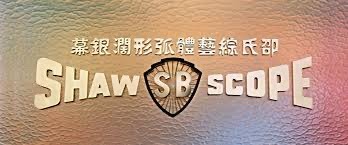
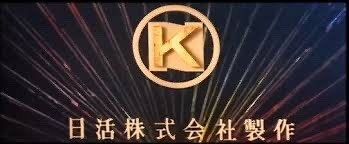

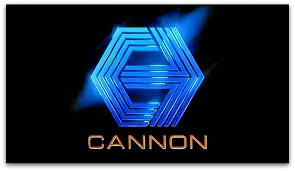

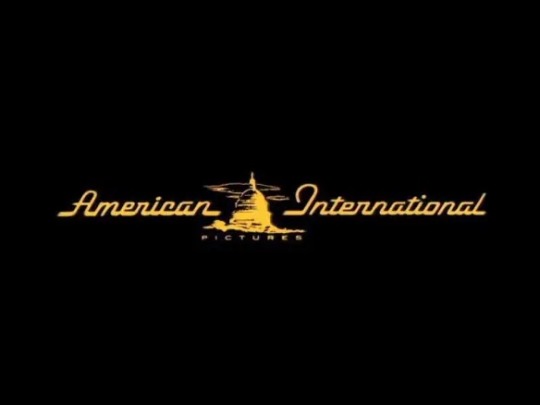



#movies#cannon films#toei#Toho#shaw brothers#golden harvest#hammer films#embassy home entertainment#nikkatsu#american international pictures#new world video#movie logos
12 notes
·
View notes
Text
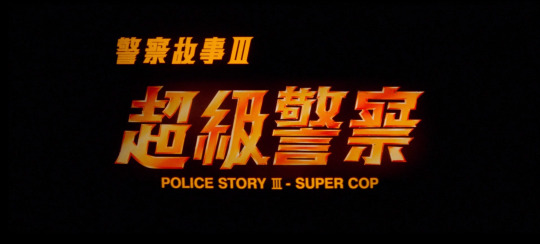

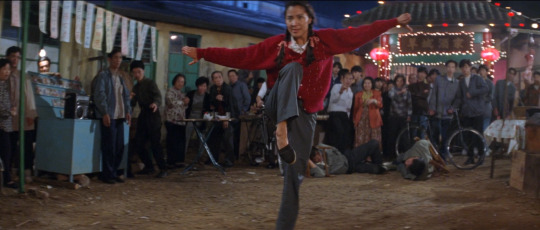

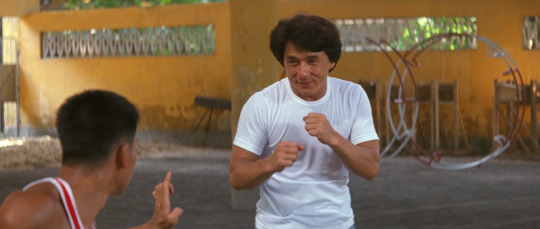




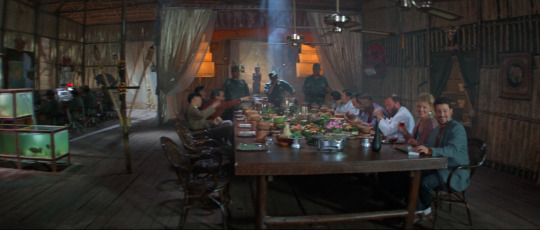


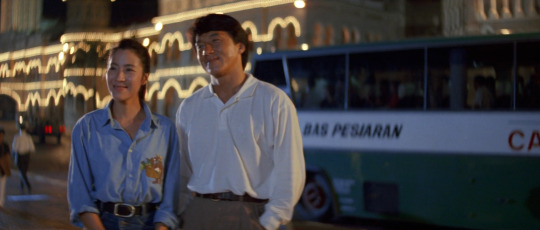
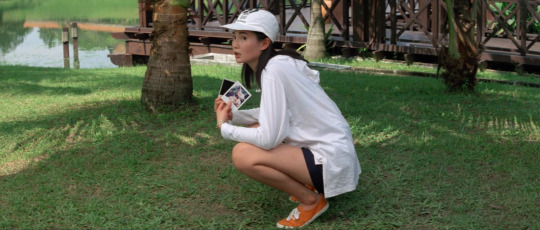
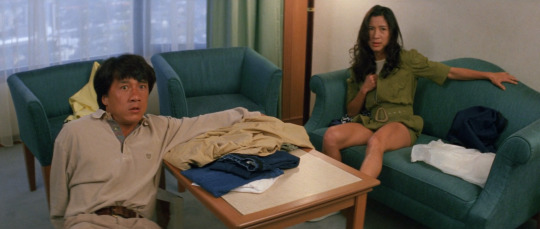



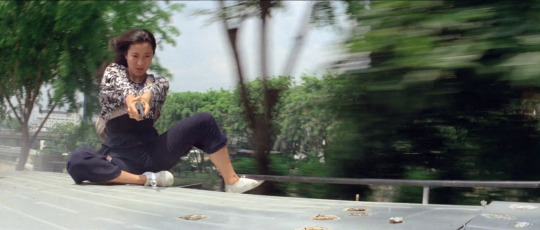
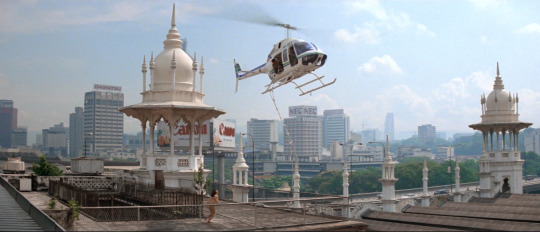


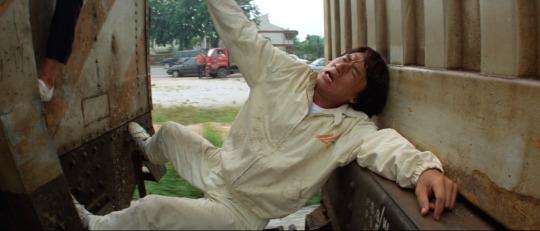

Police Story 3: Supercop (警察故事3超級警察) 1992
Jackie Chan finds a female collaborator willing to do all the crazy shit he does (and naturally it’s Michelle Yeoh) in this third film in his groundbreaking Police Story series, released as “Supercop” stateside (cementing the performer’s Western crossover).
Director: Stanley Tong
Cinematographer: Ardy Lam
Starring: Jackie Chan, Michelle Yeoh, and Maggie Cheung
#police story 3#1992#supercop#michelle yeoh#jackie chan#maggie cheung#stanley tong#hong kong action#kung fu movies#hong kong cinema#martial arts film#90s movies#警察故事3超級警察#chinese martial arts#chinese film#hong kong films#martial arts#gun fu#martial arts movies#golden harvest
3 notes
·
View notes
Text
Recently Viewed: Dreadnaught
[The following review contains MINOR SPOILERS; YOU HAVE BEEN WARNED!]
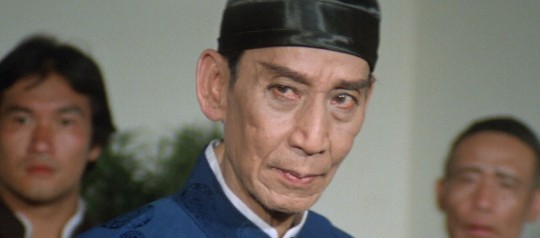
Although the Criterion Channel’s description neglects to advertise it as such, the 1981 kung-fu horror-comedy Dreadnaught belongs to Yuen Woo-ping’s loosely connected Wong Fei-hung series. Whereas the original Drunken Master featured the historical figure turned folk hero as a mischievous student (portrayed by the inimitable Jackie Chan) and Iron Monkey explored his childhood (as the son of professional badass Donnie Yen), this film depicts him as a wise old mentor—played, appropriately enough, by Kwan Tak-hing, who starred as the character in approximately seventy-seven movies (according to the notoriously reliable Wikipedia’s undoubtedly accurate count, anyway).
The plot (minimalistic as it is) revolves around Mousy, a meek, cowardly youth constantly terrorized by local thugs, corrupt cops, and… adorable puppies. Since it’s his job to collect on overdue bills for his sister’s struggling laundry business, his timid demeanor is a significant problem; thus, at the insistence of a sympathetic friend, he seeks tutelage under the esteemed Master Wong. The perceptive teacher quickly intuits that his reluctant disciple is a naturally gifted martial artist; he merely lacks the confidence required to effectively utilize his innate skills. When a convoluted sequence of events makes him the target of a deranged, bloodthirsty assassin, however, necessity might yet transform our pussycat of a protagonist into a courageous lion.
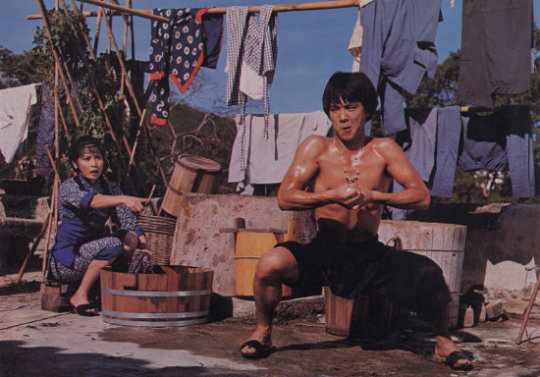
Yuen’s greatest talent lies in his ability to convey story and characterization through fight choreography, and Dreadnaught certainly delivers in that regard; every punch calls back to a narrative seed introduced in an earlier scene—a deliciously satisfying display of setup and payoff reminiscent of Edgar Wright’s Shaun of the Dead and Hot Fuzz. During the climactic showdown, for example, Mousy discovers that his family’s trademark “two-fingered grasp” technique is useful for more than just drying clothes; his firm grip strength—developed from years of wringing out wet fabric—gives him an unexpected advantage whilst grappling with his savage opponent… until his foe simply rips off the tattered remnants of his shirt, at least.
That deft juggling of tones—effortlessly transitioning between humor and suspense—elevates Dreadnaught, compensating for its relatively superficial flaws (particularly its uneven pacing). Yuen is justifiably renowned for his contributions to The Matrix and Crouching Tiger, Hidden Dragon, but I hope that more of his work as a director becomes (legally) available in the West; while his movies may not be conventionally “prestigious” or stylistically polished (compared to those produced by, say, King Hu), they are consistently entertaining.
#Dreadnaught#Yuen Woo-ping#Yuen Woo Ping#Wong Fei-hung#Wong Fei Hung#Kwan Tak-hing#Golden Harvest#kung-fu film#kung fu film#kung-fu cinema#kung fu cinema#Criterion Channel#Criterion Collection#Criterion#film#writing#movie review
1 note
·
View note
Text
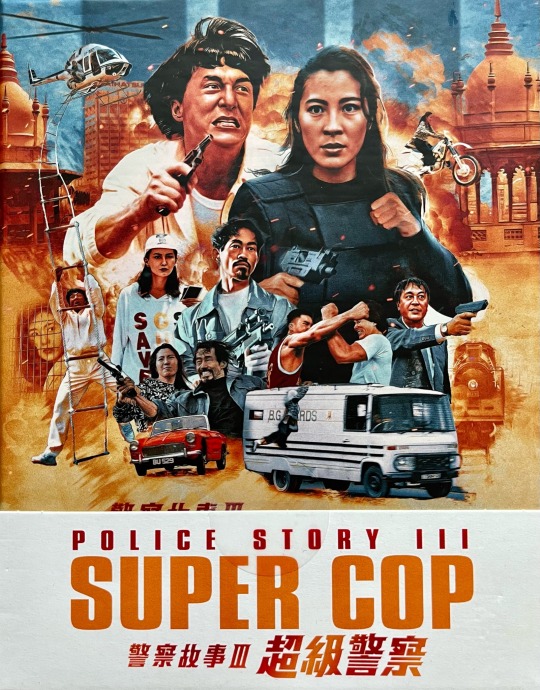

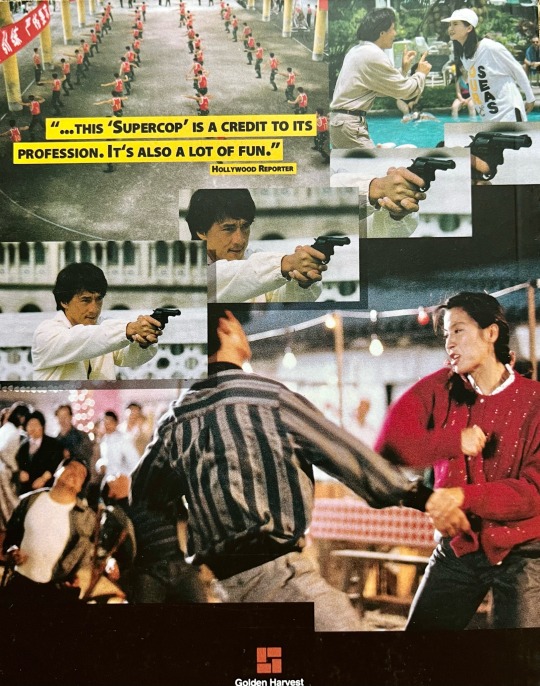
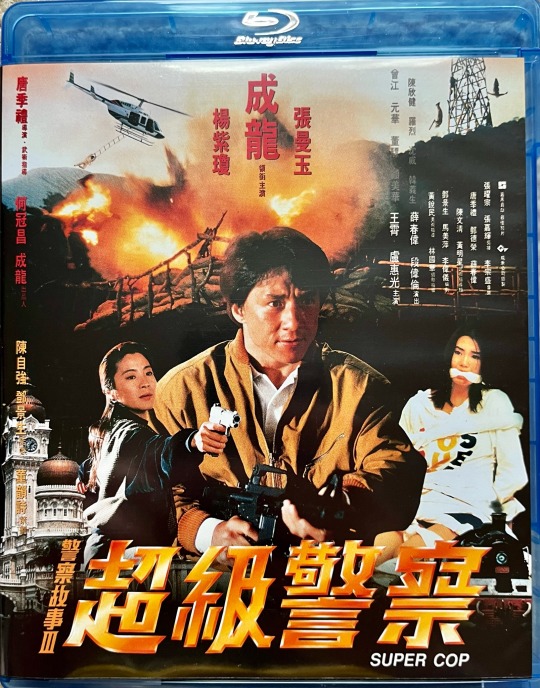



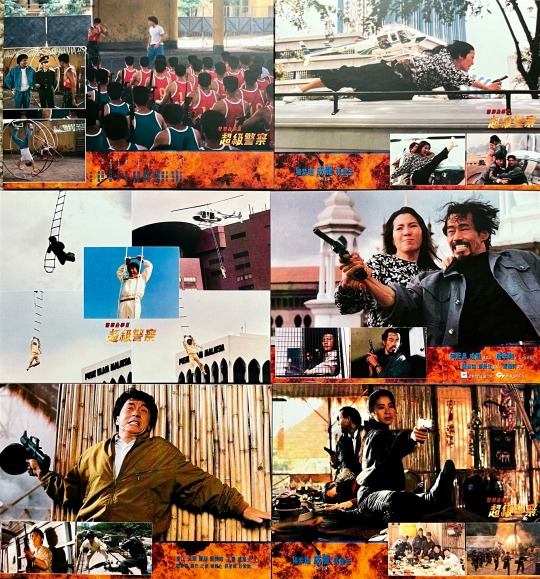


#Super Cop#Supercop#blu-ray#Action#martial arts#Fortune Star#Jackie Chan#Michelle Yeoh#Golden harvest#88 Films#Police Story#Police Story 3#Bandcamp
1 note
·
View note
Text
On February 6, 1986 The Protector debuted in Australia.

#the protector#the protector 1986#james glickenhaus#jackie chan#1980s action movies#action thriller#golden harvest films#hong kong film#exploitation films#movie art#art#drawing#movie history#pop art#modern art#pop surrealism#cult movies#portrait#cult film#australia
1 note
·
View note
Text
Romance and Chinese Boxing Don't Equal EVIL and That's Okay! "Gorgeous" reviewed! (88 Films / Blu-ray)
Fall in Love with “Gorgeous” on Blu-ray at Amazon.com!
Bu believes in true love. The young Taiwanese girl, with immense positivity, travels from her small fishing village of Jibei to the big city of Hong Kong after discovering a bottle containing a romantic note floating in the sea. When Bu is let down by the originating sender, a gay makeup artist in an attempt to use fate and fortune to…
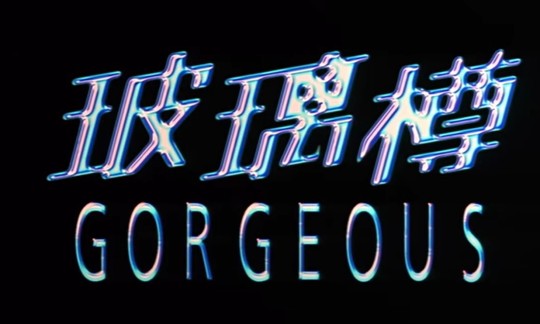
View On WordPress
#1999#35mm#88 Films#blu-ray#Brad Allen#comed#comedy#Dating Death#Elaine Jin#Emil Chau#Golden Harvest Productions#Gorgeous#Hello Dracula#Holy Virgin Vs. The Evil Dead#Hong Kong#Internal Affairs#Ivy Ho#Jackie Chan#Ken Lo#Kung Fu Hustle#Leung Chiu-wai#martial arts#MVD#MVDVisual#Raymond Chow#Richie Jen#Rush Hour#Sean Longmore#Sex and Zen II#Shu Qi
0 notes
Text
true best part of fist of fury (1972) is the song at the beginning that goes “i use my hands, to hold my fellow man…. i use my hands, to give a kind caress. but when a man chooses to hurt his fellow man…… i change my hands, into fists. fists of fury.” the second-best part is that in the mandarin version (which i couldn’t find unfortunately) petrov was voiced by bruce lee with added reverb
#these old golden harvest films usually i can only find the english dub#which is unfortunate because by and large it’s the least funny dub#anyways my partner and i were riffing on the fists……fists of fury song all night#ryddles
13 notes
·
View notes
Note
So, a friend of mine on Discord said something interesting, and I feel like you might have thoughts on it. So. What do you think of the idea of the Teenage Mutant Ninja Turtles as being "The Shaw Brothers for kids", a sort of gateway drug for "the kung fu genre"?
Not the Shaw Brothers, but Golden Harvest. Let me explain:

I’m going to sound like a conspiracy theorist when I say this, but I believe the New Line Cinema “Teenage Mutant Ninja Turtles” (1990) movie was actually a money laundering scheme by the Chinese Mafia, specifically, the Sun Yee On Triad.
Looking into the role of organized crime in martial arts cinema is a rabbit hole that goes very, very, very deep...and comes out somewhere very shocking at the end.

You mention the Shaw Brothers, but there was another Hong Kong Producer who was the only credible rival to the Shaw Brothers (and who eventually surpassed the Shaws) in martial arts movies: Golden Harvest’s Raymond Chow….a man who started off as the Shaw Brothers’ talent division, but who eventually founded his own rival studio to the Shaws (with rumored triad financial backing), and who made Bruce Lee, Angela Mao and Jackie Chan stars. Raymond Chow is widely, and extremely credibly, believed to be a middleman for the Hong Kong Triad, the Sun Yee On, who used Golden Harvest as a front facing money laundering scheme, as claimed by Frederic Dannen in "Hong Kong Babylon," and Yiu Kong Chiu in "The Triads as Business," books I recommend if you are at all interested in the topic of organized crime in the Hong Kong film industry.
Raymond Chow was also the producer and primary funder of the Teenage Mutant Ninja Turtles movies. I mean, what does it mean when your movie is entirely produced and funded by a guy well known for being a triad middleman and money launderer?

And all of this happened at New Line Cinema, a borderline independent film company…one known for having dodgy financials it’s entire existence, no less, which ultimately doomed it? One of the most extraordinary things about the 1990 Ninja Turtles movie is that it was, essentially, an independent film. New Line would later become a powerhouse as a studio and created Lord of the Rings, but at the time, it was a mainly low rent operation, rather like Cannon films, known for the success of the slasher series “Nightmare on Elm Street.” So yes, I do believe "Teenage Mutant Ninja Turtles" (1990) was a money laundering scheme by the Chinese Mafia.

The triads in Hong Kong, Macao, and Taiwan take enormous interest in financing martial arts movies for the same reason that they take a tremendous interest in financing porn movies: they’re quick, cheap, dirty, and can be used as a mechanism for laundering money, and a way to claim money from illegal sources (say, heroin) comes from a clean and legal source that can be claimed on taxes, like say, a movie studio. In addition, Hong Kong’s strict rating system, the Category III (equivalent to a far stricter R-rating) meant that very violent movies were handled in ways that were outside the law in ways similar to pornography. And according to several Senate investigations in 1991 ("Hearings on Asian Organized Crime"), the triads were actively involved in money laundering as well outside of Hong Kong, including currency trading and real estate, and the idea they could back a studio is entirely possible.

Everyone working in Hong Kong cinema has a story of dealing with the triads, who are interwoven into the city. Anita Mui's manager was was shot dead by mafiosos. Jimmy Wang Yu, the first Kung Fu star, was a suspected member of the Bamboo Union triad, and once borrowed money from one triad to pay another....and may have used his reported connections with the Triads to get Jackie Chan out of his initial contract with Golden Harvest, a favor Jackie repaid. Golden Harvest studios were actually firebombed in 1984, an event suspected to be due to Triad activity. Raymond Chow’s fellow producer and good friend who discovered Steven Chow, film producer Charles Heung, is well known to be the son of Heung Chin, who founded the Sun Yee On Triad, the largest in Hong Kong with over 25,000 members. And you don’t have to take my word for it; a US Senate Committee in 1991 on Asian Organized Crime identified Cheung as a leader of the Sun Yee On along with his brothers. Because of his association with Charles Heung and the Sun Yee On, Steven Chow, director of Kung Fu Hustle, cannot enter Canada legally.

Jackie Chan asserted Raymond Chow’s triad connections in his autobiography, and also claimed that he only hired triad members and other people who were mobbed up at Golden Harvest. One example would be producer Ng See Yuen, who produced Once Upon a Time in China for Golden Harvest, and who Jet Li refused to work with ever again after his manager was assassinated by triad gunmen (Jet Li blamed Ng See Yuen for his manager's death).
There's also Lo Wei, a Shaw Brothers director and known “Red Pole” enforcer of the Sun Yee On Triad, who came over to Golden Harvest, where he directed Bruce Lee’s Chinese Connection and Big Boss, and also directed Jackie Chan’s earliest “period” historical movies for GH. Jackie Chan, in his autobiography, stated that the reason he initially left Hong Kong to go to the United States for an American career was because Lo Wei, his director on Laughing Hyena, put a hit out on him for refusing to make Laughing Hyena 2, and Jackie had to flee the city when Lo Wei sent gunmen to his house to abduct him. When arriving in the United States, he had to avoid some men with machine guns at the airport. To this day, whenever possible, Jackie Chan goes out in public armed for fear of gangsters.

Even Jackie Chan though, never made the assertion that Raymond Chow and the Sun Yee On had Bruce Lee killed. This is important to mention because if you talk to any Chinese person, nearly all of them believe with unshakable, absolute certainty that the Chinese Mafia killed Bruce Lee, which is literally the plot of Game of Death (which, incidentally, Raymond Chow produced). Everyone around Bruce was mobbed up, because everyone in the Hong Kong film industry was mobbed up; in fact, it’s an open question how much it existed for its own sake. It’s notable Bruce Lee died at the home of Betty Lo Ting Pei, Golden Harvest actress, and his known mistress…who was married to a triad gangster. It’s also known that the first person that Betty Lo Ting Pei called when Bruce died was not medical services but Raymond Chow, something that to this day, she has not attempted to explain.

It can be hard to imagine what the motive is for Raymond Chow and the triads to kill Bruce Lee. After all, wouldn’t Bruce Lee be more useful to Raymond Chow alive than dead? I never saw the angle, here. But then, you consider that in the last few months of his life, Bruce Lee started to set the stage for his transition to behind the scenes roles like producer, and was assembling a lot of stunt talent around him (a lot of productions down the pipeline intended to have Bruce Lee in producer roles, like Circle of Iron). The rumor among the stunt players, as recounted by Sammo Hung, was that Bruce was attempting to form his own stunt and film production company (as Chiba later did successfully in Japan) and that would involve organizing and peeling off half the talent in Hong Kong….in a deeply triad controlled industry, no less. There was also a story recounted by witnesses that Bruce Lee, a temperamental and explosively violent man, physically assaulted Raymond Chow in his office with punches and kicks when he heard Chow had two sets of books in their shared production company, as Bruce was always keen to keep the triads out of his films. Ten days later, Bruce Lee was dead. And for weeks before his death, Lee told his friends "Hong Kong is getting too hot, I have to get out."
And you know something? A Ninja Turtles movie from 1990 is probably the least of it. In 2020, a few documents were declassified by the Taiwanese government that showed that the members of the Bamboo Union Triad had 19 top governmental positions in Taiwan from 1955-1984 (the era when Taiwan was in a complete state of military rule), including the National Security Bureau and all branches of the armed forces. In other words, Taiwan during the military rule era wasn't just corrupted by the triads, the triads were the government.
I never cease to be amazed at the incuriousness of the journalistic professions. Governments don't declassify documents - especially something as damning as triad involvement in government - unless they have to. So why would the Tsai Ing-Wen government reveal this now in 2020, especially when anti-corruption is the driving force of Taiwanese politics, and anti-corruption sentiment pushed the KMT out of power since the 90s? Outsiders believe that the single biggest question in Taiwanese politics is their relationship with the mainland. Kinda...the status quo is more or less a settled question. It's actually anti-corruption and anti-triad infiltration, which is why the DPP are the ruling party now.
The answer, I suspect, is that the triads are no longer working with the Taiwanese government, but with the mainland government. In the 1980s, Wong Man Fong, editor of the Xinhua paper of Hong Kong, said in several interviews he was asked by the People's Republic of China to reach out to the triads to help make a deal: no government interference in their activities, if they pledge to keep order in the city after the handover in 1997. I strongly suspect the mainland now has a similar arrangement with the Bamboo Union, Green Gang, and the Si Hai Bang they did in Hong Kong, especially since so much money is going back and forth with the release of trade to the mainland. In other words, the triads in Taiwan are active agents of the PRC.
Backdoor deals between government and the mob aren't out of the question, just ask the CIA, who used Giancana Crime Family assassins sent to kill Castro as a key plank of the Bay of Pigs Invasion, the role of the mafia in the Kennedy Assassination, or how control of opium was a key under-the-table reason for the invasion of Afghanistan.

What I suspect happened is, the Taipei government is turning on organized crime now after decades and decades of ludicrous and obvious corruption, because to the triads, the money to be made with the mainland and unification is far more lucrative. It's no coincidence that the largest pro-unification party in Taiwan is led by a triad gangster who spent time in jail for racketeering, Chang An Lo, nicknamed "the White Wolf." Like John Gotti, everyone knows he's a mobster and that's even part of the White Wolf's coolness and appeal (if you could vote for Tony "Scarface" Montana, boy, I bet a lot of guys would), but nobody can touch him. In fact, combined with how the "light world" financial institutions are intertwined along with the underworld, there's an argument to be made that the reason the PRC hasn't tried to take Taiwan is that for all intents and purposes, they already have it.
In other words, the triads have gone from using the Ninja Turtles to money launder to essentially setting global geopolitics.
196 notes
·
View notes
Note
Do you think that we’ll explore the town of Green Hills, Montana in the series and Sonic 3? Like slice of life stuff or more history? I don’t think that there’s a whole lot to the town other than it being described as a “dinky backwater town.”
Hi Honey! ❤️✨
Believe it or not, the town of Green Hills is very fruitful in its foundation! It may not feel like it, but there’s definitely a rich history of when the town was established. (Whew! Now y’all get to see how big of a nerd I am. That’s either a really good thing or a bad thing). I’ll hyperlink all of my sources/claims to specific information so y’all can review it at a later date. Hopefully, this add a bit more detail than what the Sonic Wikis have for the films.
Down below are bullet points and photos of Green Hills, Montana:
Green Hills was founded in the early 1800's by a group of explorers surveying and mapping that state of Montana. The rugged explorers took nearly 30 years in making a complete map of the state and claiming the area as home. Green Hills is located in the middle of the state and known to have fascinating geological features. The town was called "Green Hills" due to the unique shades of green found in its flora. Essentially, the town was founded by chance because it took so long to survey between 1806 to 1835.

One of the town's founders, Morgan McConnell, specifically wanted to build a town in the heart of Montana because of the area's geological feature--checkered patterns. Morgan McConnell was credited for charting nearly a quarter of the state, including the town, and coined as as THE explorer of Montana. His favorite location to sit and work at was the Devil's Pinkie (the ledge that Sonic stands at in the first and second film). Unexpectedly, McConnell fell off of the Devil's Pinkie and died. According to town legend, McConnell's name echoed through the valley ranges for hours after he died. It's unknown if these are still heard in the area today.
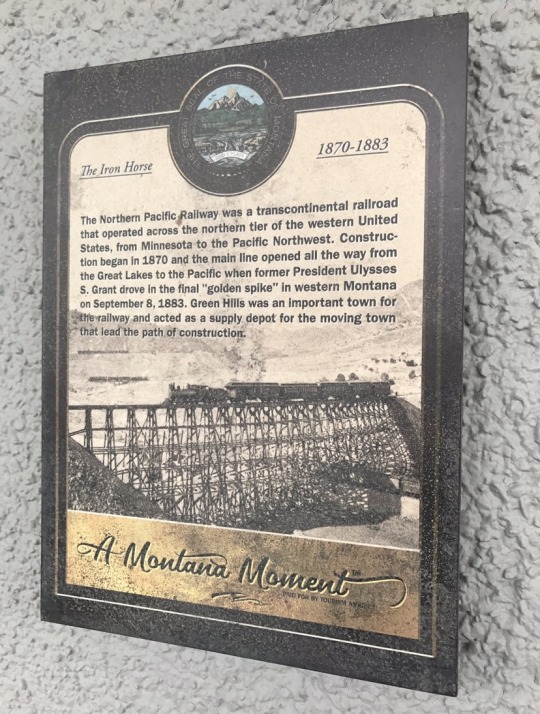
Between 1870 and 1883, the town of Green Hills became one of the firsts settled areas along the Northern Pacific Railway. The transcontinental railroad system stretched from the State of Minnesota, the Pacific Northwest, and along the main line opening at the Great Lakes. A town plaque describes Green Hills as a "golden spike" by former USA president Ulysses S. Grant and viewed as an important hub. The town is credited as a supply depot, as well as known for bringing in large immigration populations. The railroad system is still a crucial necessity of the town today.
The first settlers of Green Hills, Montana didn't start making their migration to the area until the 1860s. The settlers were faced with hardships of the land, lack of infrastructure, and brutal winters. Families were known to mingle together in small dwellings and form small communities. Polygamous families were common until Christian morality arrived to the area in later years (Welcome-to-Green-Hills, 2021).
Main Street features the town's first general store, a feed and gardening supply store, and post office.
Green Hills, Montana takes pride in country hospitality. The warmer months have communal events such as hoedowns, harvests and festivals, fishing derbies, farmers markets, and horseback riding events. The business district features Dr. Maddie Wachowski's veterinary clinic, antique shops, a brewery (AKA, the Beer Gardens), a stationary shop, a butcher's shop, and the Mean Bean Coffee Shop (the slogan: "drink mean"). (Tails Channel, 2021).
The Green Hills Community Theater is a town gem. It was established in 1905 and has been known to put on spectacular and successful productions for over 100 years.

The Green Hills Bulletin (the local newspaper) says that they've been the hot spot for a classic car show for the past twenty years, have a "Dog of the Week" section, a local artist guild that does mosaics for the town, recently had a worker's strike on repairing the railroad system in town, and are in the middle of a movement for accessibility laws for disabled residents.
In the first movie's novel, Green Hills is known for its massive Blueberry festivals in the fall. This is an event that's welcome to all of the farmers in the state and neighboring states. Tom is known to actively take part of the festival.
In the 1900's, the town saw an influx of United States veterans occupy the area. It's seen as a "retirement community" to those not actively serving.
The town as a population of nearly 2,000 residents, as implied by the "Welcome to Green Hills" sign at the speed trap.

There's definitely more that the town has to offer in terms of history. When I have the chance, I'll give this post some more attention and add to it. Until then, enjoy some historical facts about our Dinky Backwater Town!
59 notes
·
View notes
Text
from this article released today titled: “Three films in half a year were shortlisted for the Golden Deer Awards, Wang Yibo proved himself with good works!”
On August 21, the nominees for the 18th China Changchun Film Festival, the "Golden Deer Award" that has attracted much attention from the public, were announced. China Changchun Film Festival is an international national-level film festival approved by the Ministry of Radio, Film and Television of the People's Republic of China . It will be held in Changchun from August 28th to September 2nd.
A total of 75 films were submitted for the Golden Deer Award Film Festival. After the jury’s preliminary selection, 15 films were finally shortlisted.
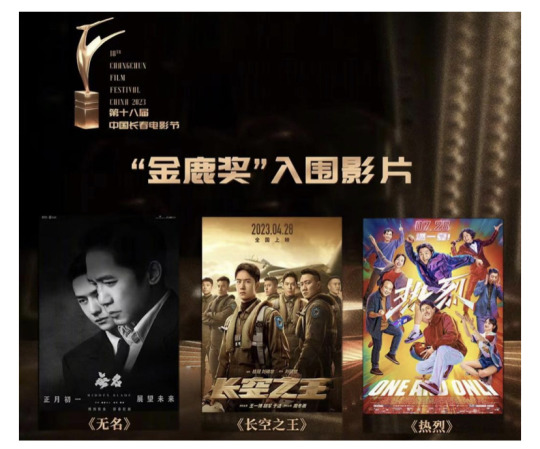
The three films have very different styles, and Wang Yibo's roles in them are also completely different. In the literary film "Hidden Blade", the underground party undercover Mr. Ye played by Wang Yibo is cold and forbearing, and his thoughts are meticulous. "Even if there are few lines, the audience seems to be able to hear his unfinished words"; ", he played the young test pilot Lei Yu, who was energetic, courageous and wise, "the arc of character growth is convincing"; and in the sports movie "One and Only", he played the dancer who is pure and true, persistent with his love, "simple and pure, but very touching". The three completely different roles not only reflect Wang Yibo's excellent acting skills - he interprets each role very well, but also shows the audience his broad acting path.
If the audience during the period of "Hidden Blade" may also attribute his excellent performance to the careful training of director Cheng Er, then the excellent performance of "Born to Fly" proves that Wang Yibo's professional ability as an actor is stable-he can eat this bowl of rice , and eat very well. He successfully won the honor of the most media-focused actor in the movie channel's media attention unit by virtue of his roles in the two films "Hidden Blade" and "Born to Fly". For Wang Yibo, the talent of his lines helps to set the characters in different languages, and the excellent appearance endows the characters with special charm. Just like the award speech said, "The characters contributed by Wang Yibo often give the audience clear and mysterious contradictions. Feeling, combined with romantic and noble personal characteristics."
The movie "One and Only" further demonstrated his ability to control different roles as an actor. In "One and Only", Wang Yibo starred for the first time to challenge the low-level little people. This character is like him, because they have the same superior dance talent, and the same willingness to sweat and pain. As a top dancer and all-round dancer in domestic entertainment, it is difficult for us to find another star in the entertainment circle who is better than Wang Yibo's street dancer and more suitable for this role. This character is not like him, because Chen Shuo (character name) is the epitome of those hip-hop old OGs who had no money and resources back then, a complete little guy chasing dreams, and Wang Yibo himself is more confident and powerful than Chen Shuo. Chen Shuo's struggle insists on the epitome of his past, but the reality of Chen Shuo's suffering is not Wang Yibo's experience. He is far luckier than Chen Shuo.
This year is the year when Wang Yibo's films started, and it was also a year when his word-of-mouth box office received a harvest. All 3 films were shortlisted for the Golden Deer Award. Wang Yibo proved his status as an excellent actor with his good works, and also laid a solid foundation for further climbing the peak in the future. I hope that the young actor Wang Yibo can bring more excellent movies to the audience in the future and contribute more exciting roles.
#wang yibo#yes thank you he really established himself well as a movie actor with his works#i am always proud of bobo 🥹🥹🥹🥹#MY BOY HAS ACTING RANGE!!!!!!!#accio victuuri translation
85 notes
·
View notes
Text
Scattered thoughts on The Wicker Man 2006:
This felt in some respects like a bad production of a good play- it hits so many of the same beats as the original film, but it hits them wrong!
The original Summerisle was creepy intermixed with seeming like a really nice, friendly, cheery place to live. The tension builds with each scene of the village doing something weird, but not necessarily wrong. In this film, Summerisle (excuse me, Summersile) is filled with sinister old women chanting “Yes, the wicker man!” and all but outright telling the cop what they want him to hear. Howie had to work to find out what they wanted him to know- that was part of his tragedy, that his own efforts doomed him. This film feels like the cult doesn’t trust their victim’s intelligence or skill as a detective so they have to spoon feed him every clue.
“This is like if the girl in Get Out said “I want to take you to my family’s experimental brain surgery party!” - my husband
Nic Cage is famously as good or bad as any given movie calls for, but when the whole cast is bad, it’s probably the director’s fault.
Yes, it’s misogynistic. Extremely so. A class full of girls and a line of pregnant women are both treated as scary sights in and of themselves. In many ways it’s reminiscent of Harvest Home, but the decent quality of that book overall made the misogyny offend me far more. Here it’s just goofy.
On that note, I wouldn’t normally think anything of a man punching an evil woman in a horror movie, but it feels like the movie wants me to feel a certain way about a manly man drop-kicking a teenage girl into a wall. But how does it want me to feel?
Sister Summersile isn’t given anywhere near Lord Summerisle’s charm or seduction; she’s just straightforwardly creepy. The whole point of the leader should be their charm!
There is a note or two of folk music during the procession, drowned out by the suspenseful soundtrack. COWARDS.
If our lead isn’t religious, let alone virginal, the line about “You have the opportunity to be a martyr” means nothing.
“Not the bees!” Yes, yes, it’s very funny, and the bees themselves are Birdemic-level bad CGI. But if they revive him with an epipen and then burn him anyway, what was the point?
“Our ancestors fled persecution in Salem!” Fuck you, movie.
This leads into one of my biggest criticisms of the film’s internal logic- the history of the cult. In the original film, Lord Summerisle’s grandfather created a Golden Bough-inspired “recreation” of ancient pagan traditions on the island; you can raise questions about how well that would work, but I bought it. But American white people don’t have ancient pagan customs. We all came over here long after Europe was Christianized. I would believe a New Age pseudo-Wiccan cult started a generation or so ago, or I would believe a Plain Folk pseudo-Shaker insular Christianity, but I can’t believe both at the same time. (I guess I should just thank god that it wasn’t portrayed as an evil Native American island...)
After all that, the end credit line “Dedicated to Johnny Ramone” was the last thing I expected.
51 notes
·
View notes